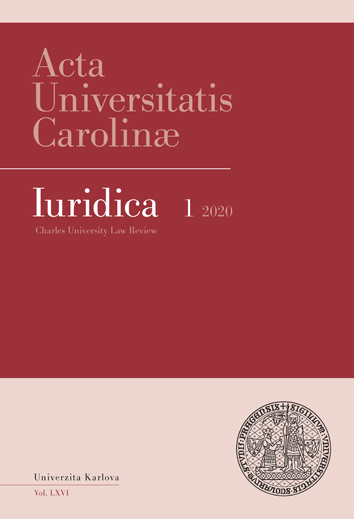Evropské a české atomové právo v kontextu práva energetického a práva životního prostředí (renesance, nebo úpadek?)
European and Czech Atomic Law in the Context of Energetic Law and Enviornmental Law (Rennaissance or Declaine)
Author(s): Eduard KloboučekSubject(s): EU-Legislation
Published by: Univerzita Karlova v Praze, Nakladatelství Karolinum
Keywords: nuclear law; atomic act; nuclear; radioactive; public participation
Summary/Abstract: This article deals with recent developments in atomic law in the Czech Republic, the European Union and in international field. In the Czech Republic, the new Act No. 263/2016 Coll., The Atomic Act, which became a public codex of atomic law, is a piece of legislation that encompasses nuclear safety, radiation protection, radioactive waste management, shipments of nuclear materials and other radioactive sources, security of nuclear materials and nuclear facilities, radiation emergency management, radiation monitoring and nonproliferation of nuclear weapons. Atomic Act replaced the old Act No. 18/1997 Coll. in which only civil liability for nuclear damage remained in force. At European Union level, a serious development can be observed lately, when new directives have been adopted to regulate radioactive waste management, nuclear safety and radiation protection. Recently, the Convention on Supplementary Compensation for Nuclear Damage and the Annex to the Convention on the Physical Protection of Nuclear Material has entered into force internationally. The new Atomic Act attempted to respond to these European and international documents and to implement and transpose their demands into our national law. In atomic law, legislative waves have been historically observed, and they have always responded to the nuclear accidents that took place in particular in the Three Mile Island, Chernobyl, and lastly in Fukushima, Japan. The last post-Fukushima period is characterized by the strengthening of security requirements at both international and national levels. It also raised question of further utilization of nuclear energy. The biggest challenges that the atomic law faces nowadays are the safe disposal of radioactive waste and spent nuclear fuel, the decommissioning of nuclear facilities, the prolongation of the operation of existing nuclear facilities and the construction of new facilities, while ensuring even more demanding safety requirements and consideration of environmental impacts and population. The recent development is also characterised by growing emphasis on public representation and transparency in processes that are connected to atomic law. Atomic law has a lot of interconnections with other branches of law. In particular, it may be classified as a special administrative law or falls under one of the sub-areas of environmental law. It has its interfaces with construction law and energy law. In particular, recently trends in enhancing environmental legislation can be observed in atomic law. Wide range of institutions, including the State Office for Nuclear Safety, is involved in the regulation of the peaceful use of nuclear energy and ionizing radiation, which have the task of reflecting these diverse interests.
Journal: Acta Universitatis Carolinae Iuridica
- Issue Year: 66/2020
- Issue No: 1
- Page Range: 9-34
- Page Count: 26
- Language: Czech

